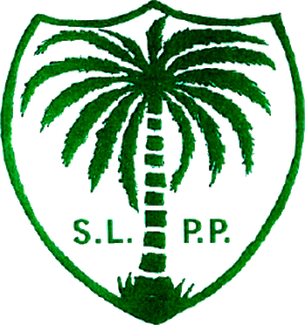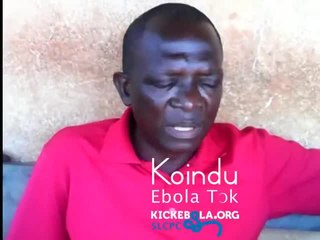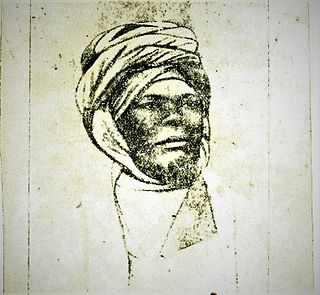
Sierra Leone, officially the Republic of Sierra Leone, is a country on the southwest coast of West Africa. It is bordered to the southeast by Liberia and by Guinea to the north. Its land area is 73,252 km2 (28,283 sq mi). It has a tropical climate and environments ranging from savannas to rainforests. As of the 2023 census, Sierra Leone has a population of 8,908,040. Freetown is both its capital and its largest city. The country is divided into five administrative regions, which are further subdivided into 16 districts.
Sierra Leone first became inhabited by indigenous African peoples at least 2,500 years ago. The Limba were the first tribe known to inhabit Sierra Leone. The dense tropical rainforest partially isolated the region from other West African cultures, and it became a refuge for peoples escaping violence and jihads. Sierra Leone was named by Portuguese explorer Pedro de Sintra, who mapped the region in 1462. The Freetown estuary provided a good natural harbour for ships to shelter and replenish drinking water, and gained more international attention as coastal and trans-Atlantic trade supplanted trans-Saharan trade.

Freetown is the capital and largest city of Sierra Leone. It is a major port city on the Atlantic Ocean and is located in the Western Area of the country. Freetown is Sierra Leone's major urban, economic, financial, cultural, educational and political centre, as it is the seat of the Government of Sierra Leone. The population of Freetown was 1,347,559 as of the 2024 census.

Alhaji Ahmad Tejan Kabbah was a Sierra Leonean politician who served twice as the 3rd President of Sierra Leone, from 1996 to 1997 and again from 1998 to 2007. An economist and attorney by profession, Kabbah spent many years working for the United Nations Development Programme. He retired from the United Nations and returned to Sierra Leone in 1992.

The Sierra Leone People's Party (SLPP) is one of the two major political parties in Sierra Leone, along with its main political rival the All People's Congress (APC). It has been the ruling party in Sierra Leone since 4 April 2018. The SLPP dominated Sierra Leone's politics from its foundation in 1951 to 1967, when it lost the 1967 parliamentary election to the APC, led by Siaka Stevens. Originally a centre-right, conservative party, it identifies since 2012 as a centre-left social democratic party, with a centrist tendency.

The Sierra Leonean Creole or Krio is an English-based creole language that is the lingua franca and de facto national language spoken throughout the West African nation of Sierra Leone. Krio is spoken by 96 percent of the country's population, and it unites the different ethnic groups in the country, especially in their trade and social interaction with each other. Krio is the primary language of communication among Sierra Leoneans at home and abroad, and has also heavily influenced Sierra Leonean English. The language is native to the Sierra Leone Creole people, or Krios, a community of about 104,311 descendants of freed slaves from the West Indies, Canada, United States and the British Empire, and is spoken as a second language by millions of other Sierra Leoneans belonging to the country's indigenous tribes. English is Sierra Leone's official language, and Krio, despite its common use throughout the country, has no official status.
The Sherbro people are a native people of Sierra Leone, who speak the Sherbro language; they make up 1.9% of Sierra Leone's population or 134,606. The Sherbro are found primarily in their homeland in Bonthe District, where they make up 40% of the population, in coastal areas of Moyamba District, and in the Western Area of Sierra Leone, particularly in Freetown. During pre-colonial days, the Sherbro were one of the most dominant ethnic group in Sierra Leone, but in the early 21st century, the Sherbro comprise a small minority in the nation. The Sherbro speak their own language, called Sherbro language.

Pendembu is a town in Kailahun District in the Eastern Province of Sierra Leone. The town population was 7,243 at the 2004 census but increased to 20,502 according to a more recent estimate. Pendembu lies approximately 36 miles from Kenema and about 235 east of Freetown. Pendembu is a trade center and is one of the main towns in Eastern Sierra Leone.

Patricia Kabbah was a Sierra Leonean lawyer who served as First Lady of Sierra Leone from 1996 to 1998. She was the first wife of Sierra Leone's third president, Ahmad Tejan Kabbah. She is widely regarded as one of the most influential first ladies in the history of Sierra Leone.
The Krio Descendants Union or (formerly) the Creole Descendants Union is an offshoot of the 'Settlers' Descendants Union' which was founded to unite the Creole people and the Oku people during the decolonisation era. The Krio Descendants Union was founded as the Creole Descendants Union by George T.O. Robinson, a Creole civil servant who served as the first President of the organisation. The organization's current president is Cassandra Garber, who was a former teacher at the Freetown Secondary School for Girls. In Freetown, Sierra Leone the union is called the 'Krio Descendants Yunion' in the Krio and it is abbreviated as KDY.
Joseph Gerald Adolphus Cole better known by his stage name Daddy Saj is a Sierra Leonean rapper and arguably the biggest and most famous musician from Sierra Leone. He uses his music to address political corruption and general corruption in Sierra Leone. His rap is a blend of hip hop and traditional goombay music. While his music is mostly in Krio, Sierra Leone's national language, he does also performs in English. His first album 'Corruption e do so' struck a chord not only in Sierra Leone, but across Africa.
Mandingo people of Sierra Leone is a major ethnic group in Sierra Leone and a branch of the Mandinka people of West Africa. The Mandingo first settled in what is now Sierra Leone from Guinea over 650 years ago as farmers, traders and Islamic clerics in the time of the Mali Empire, an empire under the rule of the famous Muslim ruler Mansa Musa. About 500 years later, Beginning in the late 1870s to the 1890s under the rule of prominent Mandinka Muslim cleric Samori Ture, an even larger group of Mandingo immigrated from Eastern Guinea settled in northeastern Sierra Leone on lands conqured by the Muslim ruler Samori Toure as part of the Wassoulou Empire. The Mandingo are partly responsible for the spread of Islam in Sierra Leone. The Mandingo people of Sierra Leone have a very close friendly and allied relationship with their neighbors the Mandingo people of Guinea and Liberia, as they share very similar identical dialect of the Mandingo language, tradition, culture and food.
Sierra Leonean Americans are an ethnic group of Americans of full or partial Sierra Leonean ancestry. This includes Sierra Leone Creoles whose ancestors were African American Black Loyalists freed after fighting on the side of the British during the American Revolutionary War. Some African Americans trace their roots to indigenous enslaved Sierra Leoneans exported to the United States between the 18th and early 19th century. In particular, the Gullah people of partial Sierra Leonean ancestry, fled their owners and settled in parts of South Carolina, Georgia, and the Sea Islands, where they still retain their cultural heritage. The first wave of Sierra Leoneans to the United States, after the slavery period, was after the Sierra Leone Civil War in the 1990s and early 2000s. According to the American Community Survey, there are 34,161 Sierra Leonean immigrants living in the United States.

Sierra Leone is officially a secular state, although Islam and Christianity are the two main and dominant religions in the country. The Sierra Leone Government is constitutionally forbidden from establishing a state religion, though Muslim and Christian prayers are usually held in the country at the beginning of major political occasions, including presidential inauguration.

Sierra Leone is a multilingual country. English is the official language, and Krio is the most widely spoken language among the different ethnic groups across Sierra Leone.

Sierra Leone is home to around sixteen ethnic groups, each with its own language. In Sierra Leone, membership of an ethnic group often overlaps with a shared religious identity. According to the 2004 census Temne is the largest ethnic group in Sierra Leone.

The Sierra Leone Creole people are an ethnic group of Sierra Leone. The Sierra Leone Creole people are descendants of freed African-American, Afro-Caribbean, and Liberated African slaves who settled in the Western Area of Sierra Leone between 1787 and about 1885. The colony was established by the British, supported by abolitionists, under the Sierra Leone Company as a place for freedmen. The settlers called their new settlement Freetown. Today, the Sierra Leone Creoles are 1.2 percent of the population of Sierra Leone.

The Oku people or the Aku Marabout or Aku Mohammedans are an ethnic group in Sierra Leone and the Gambia, primarily the descendants of marabout, liberated Yoruba people who were released from slave ships and resettled in Sierra Leone as Liberated Africans or came as settlers in the mid-19th century.
The Gambian Creole people, or Krio or Aku, are a minority ethnic group of Gambia with connections to and roots from the Sierra Leone Creole people. In Gambia the Aku account for about 2% of the population. Some estimates put the figure higher. However, according to the 2013 Gambian Census, the Aku make up 0.5% of the population or around 8,477 people.
Aderemi Raymond Desmond Renner-Thomas was a former Chief Justice of Sierra Leone.